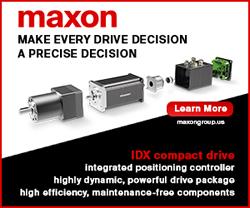Torc Robotics issued permit to test self-driving car technology in Nevada
Both of the Torc self-driving cars were issued special red Nevada license plates, indicating that the vehicles are autonomous.
Torc Robotics has added Nevada to its fast-growing list of self-driving-car testing venues, with todays announcement that the firm has been granted an autonomous vehicle testing permit from the state. The permit allows Torc to test its self-driving cars on public roads throughout Nevada.
Fleming said Nevada could also serve as an environmental testing ground for measuring the systems performance in high temperature and wind. Torc vehicles have already undergone extensive environmental testing in rainy weather conditions, light snow, and fog.
The Nevada Department of Motor Vehicles (DMV) issued the permit to Torc on August 14, along with the states official red license plates reserved for autonomous vehicles.
"It has been a pleasure working with the Nevada DMV," Fleming said. "The administration is working hard to foster industry growth and speed up innovation for autonomous technology."
In 2011, Nevada became the first U.S. state to pass legislation implementing an autonomous vehicle testing program. This past June, Governor Brian Sandoval signed Assembly Bill 69 into law, expanding current regulations to authorize additional testing in growing areas such as platooning technology and permit the operation of fully autonomous vehicles without a driver.
"When the Nevada DMV was approached by Torc Robotics regarding the application for an autonomous vehicle testing permit, we were excited knowing all of the work that Torc is currently doing in robotics technology," said a spokesperson from the Nevada DMV.
"Nevadas partnership with Torc is another example of the direction that Nevada is heading in. Were allowing companies to come and test their technology here while working with each other and not over regulating. Partnering with a company like Torc will help diversify the autonomous vehicle testing program in Nevada and allow the program to go to further heights," the spokesperson said.
Torc has tested its autonomous vehicle technology in more than 20 states across the U.S. In July, it traveled to Seattle, Washington, as the first company to register with Washington states newly created Autonomous Vehicle Pilot Program.
"From the start, we have worked to push our technology in challenging real-world environments across the U.S.," Fleming said. "We are encouraged by the continued support of state governments and are excited about establishing a greater presence in the Western states."
About Torc Robotics
Torc Robotics, headquartered in Blacksburg, Virginia, provides end-to-end self-driving solutions across multiple industries, including automotive, mining, and defense. Founded in 2005, Torc has integrated its components and systems on ground vehicles ranging from consumer SUVs to 300-ton mining trucks-in safety-critical environments. Torc first gained notice when it developed the self-driving software stack for Virginia Tech in the 2007 DARPA Urban Challenge. As one of three winners of the DARPA Urban Challenge, Torc has commercialized this technology through partnerships with original equipment manufacturers (OEMs) and their Tier 1 suppliers.
Featured Product

Strain Wave Gearheads by maxon - Highly precise, compact, and efficient.
Strain wave gearheads are ideal for use in applications requiring precision motion control and high torque transmission in a compact design. maxon strain wave gearheads are a specialized type of gearhead where precision and compact design are crucial. This type of gearhead is often used in applications in a confined space. With their advanced gear tooth design, maxon's strain wave gearheads provide high efficiency and good back drivability. Typical applications include: Robotics, Aerospace, Medical technology and Optical systems .
